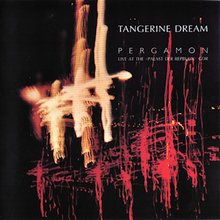
Tangerine Dream is a German electronic music band founded in 1967 by Edgar Froese. The group has seen many personnel changes over the years, with Froese the only constant member until his death in January 2015. The best-known lineup of the group was its mid-1970s trio of Froese, Christopher Franke, and Peter Baumann. In 1979, Johannes Schmoelling replaced Baumann until his own departure in 1985. This lineup was notable for composing many movie soundtracks. Since Froese's death in 2015, the group has been under the leadership of Thorsten Quaeschning. Quaeschning is Froese's chosen successor and is currently the longest-serving band member, having joined in 2005. Quaeschning is currently joined by violinist Hoshiko Yamane who joined in 2011 and Paul Frick who joined in 2020. Prior to this Quaeschning and Yamane performed with Ulrich Schnauss from 2014 to 2020. Schnauss only played two shows with Froese in November 2014 before Froese's passing.

Klaus Schulze was a German electronic music pioneer, composer and musician. He also used the alias Richard Wahnfried and was a member of the Krautrock bands Tangerine Dream, Ash Ra Tempel, and the Cosmic Jokers before launching a solo career consisting of more than 60 albums released across six decades.
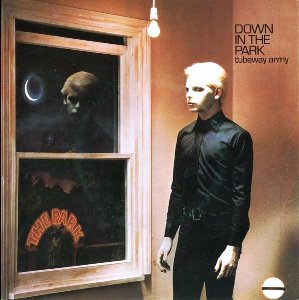
"Down in the Park" is a 1979 song by the English band Tubeway Army, featuring lead vocals by Gary Numan. It was released as the first single from the band's second album Replicas, though was not a hit. The song was written and produced by the band's frontman Gary Numan, and despite its lack of commercial success, has been performed by Numan regularly in his live shows throughout the years.

The Palace of the Republic was a building in Berlin that hosted the Volkskammer, the parliament of East Germany, from 1976 to 1990.
Christopher Franke is a German musician and composer. From 1971 to 1987, he was a member of the electronic group Tangerine Dream. Initially a drummer with The Agitation, later renamed Agitation Free, his primary focus eventually shifted to keyboards and synthesizers as the group moved away from its psychedelic rock origins. While he was not the first musician to use an analog sequencer, he was probably the first to turn it into a live performance instrument, thus laying the rhythmic foundation for classic Tangerine Dream pieces and indeed for the whole Berlin school sound.

Edgar Willmar Froese was a German musical artist and electronic music pioneer, best known for founding the electronic music group Tangerine Dream in 1967. Froese was the only continuous member of the group until his death. His solo and group recordings prior to 2003 name him as "Edgar Froese", and his later solo albums bear the name "Edgar W. Froese".
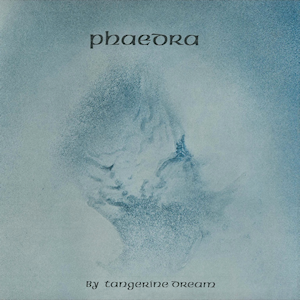
Phaedra is the fifth studio album by German electronic music group Tangerine Dream. It was recorded during November 1973 at The Manor in Shipton-on-Cherwell, England and released on 20 February 1974 through Virgin Records. This is the first Tangerine Dream album to feature their now classic sequencer-driven sound, which is considered to have greatly influenced the Berlin School genre.
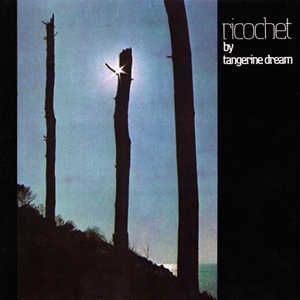
Ricochet is the seventh major release and first live album by the German electronic music group Tangerine Dream. It was released, on the Virgin label, in 1975. It consists of two side-long compositions mixed from studio recordings and the UK portion of their August–October 1975 European Tour. The sound of the album is similar to that of the group's other "Virgin Years" releases, relying heavily on synthesizers and sequencers to produce a dense, ambient soundscape, but is much more energetic than their previous works. Ricochet uses more percussion and electric guitar than its predecessors Phaedra and Rubycon, and borders on electronic rock. The main innovation on the album is the use of complex, multi-layered rhythms, foreshadowing the band's own direction in the 1980s and trance music and similar genres of electronic dance music.

Rubycon is the sixth studio album by German electronic music group Tangerine Dream. It was released in 1975. It is widely regarded as one of their best albums. Rubycon further develops the Berlin School sequencer-based sound they ushered in with the title track from Phaedra.
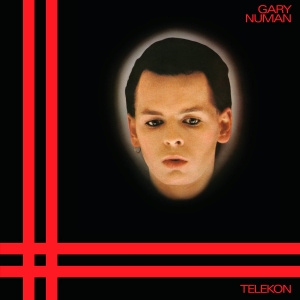
Telekon is the second solo studio album by the English new wave musician Gary Numan. It debuted at the top of the UK Albums Chart in September 1980, making it his third consecutive No. 1 album. It was also the third and final studio release of what Numan retrospectively termed the "machine" section of his career, following Replicas and The Pleasure Principle.

Stratosfear is the seventh studio album by the German group Tangerine Dream.

Tangram is the thirteenth major release and tenth studio album by the electronic music group Tangerine Dream. It became their fifth biggest selling album, reaching #36 in the British Top 40, and spending 5 weeks on the chart.
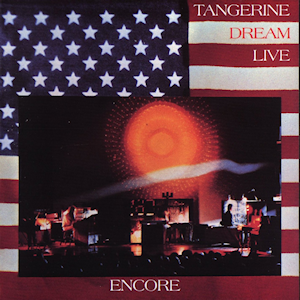
Encore: Tangerine Dream Live is the tenth major release and second live album by the German group Tangerine Dream. It is mostly assembled from various recordings from the band's very successful 1977 U.S. tour.

Logos Live is the eighteenth major release and fourth live album by Tangerine Dream. It was released in December 1982. It is a live album from the concert at the Dominion Theatre in London, England. Much like Tangram with short movements connected by atmospheric segues, Logos captured a period of Tangerine Dream's evolution from experimental to melodic, documented also by their soundtrack to the motion picture Risky Business a year later.
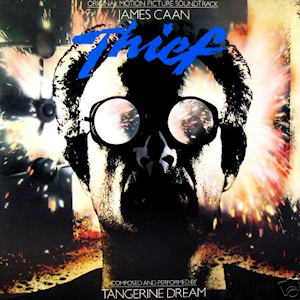
Thief (1981) is the fifteenth major release and second soundtrack album by Tangerine Dream. It is the soundtrack for the 1981 American neo-noir crime film Thief, directed by Michael Mann. It reached No. 43 on the UK Albums Chart in a 3-week run.

Hans-Joachim Roedelius is a German electronic musician and composer, known as a co-founder of the influential 'kosmische' groups Cluster and Harmonia. He is notable for his prolific discography, either as a solo artist, as part of a band, or in collaboration with other artists. He has more than 100 releases to his name. He also performed in the ambient jazz trio Aquarello, and released several solo studio albums.

Johannes Schmoelling is a German musician and keyboard artist. He was a member of the prolific electronic music group Tangerine Dream from 1979 to 1985.

Einstürzende Neubauten is a German experimental music group, formed in West Berlin in 1980. The band currently comprises founding members Blixa Bargeld and N.U. Unruh, long-time contributor Alexander Hacke, plus Jochen Arbeit, and Rudolph Moser, who both joined the line-up in 1997.
Tangerine Dream bootleg recordings are performances by Tangerine Dream that have attained some level of public circulation without being available as a legal release. The term most often refers to audio recordings, but also includes video performances. Bootleg recordings arise from a multitude of sources, including covertly copied live concerts, studio outtakes, broadcast performances. Some bootlegs have included material from official releases.

